English
Subject Leader: Mrs Atkinson
The overarching aim for English in the National Curriculum is to promote high standards of language and literacy by equipping pupils with a strong command of the spoken and written word. It aims to develop their love of literature through widespread reading for enjoyment.
The curriculum for English at Airedale Infant School aims:
- To teach children the skills needed to read fluently and with good understanding
- To develop the habit of reading widely and often, for both pleasure and information
- To acquire a wide vocabulary, an understanding of grammar and knowledge of linguistic conventions for reading, writing and spoken language
- To appreciate our rich and varied literary heritage
- To write for a range of purposes, adapting their language and style in and for a range of contexts, purposes and audiences
- To use discussion in order to learn; they should be able to elaborate and explain their understanding and ideas
- To be able to speak and listen to others
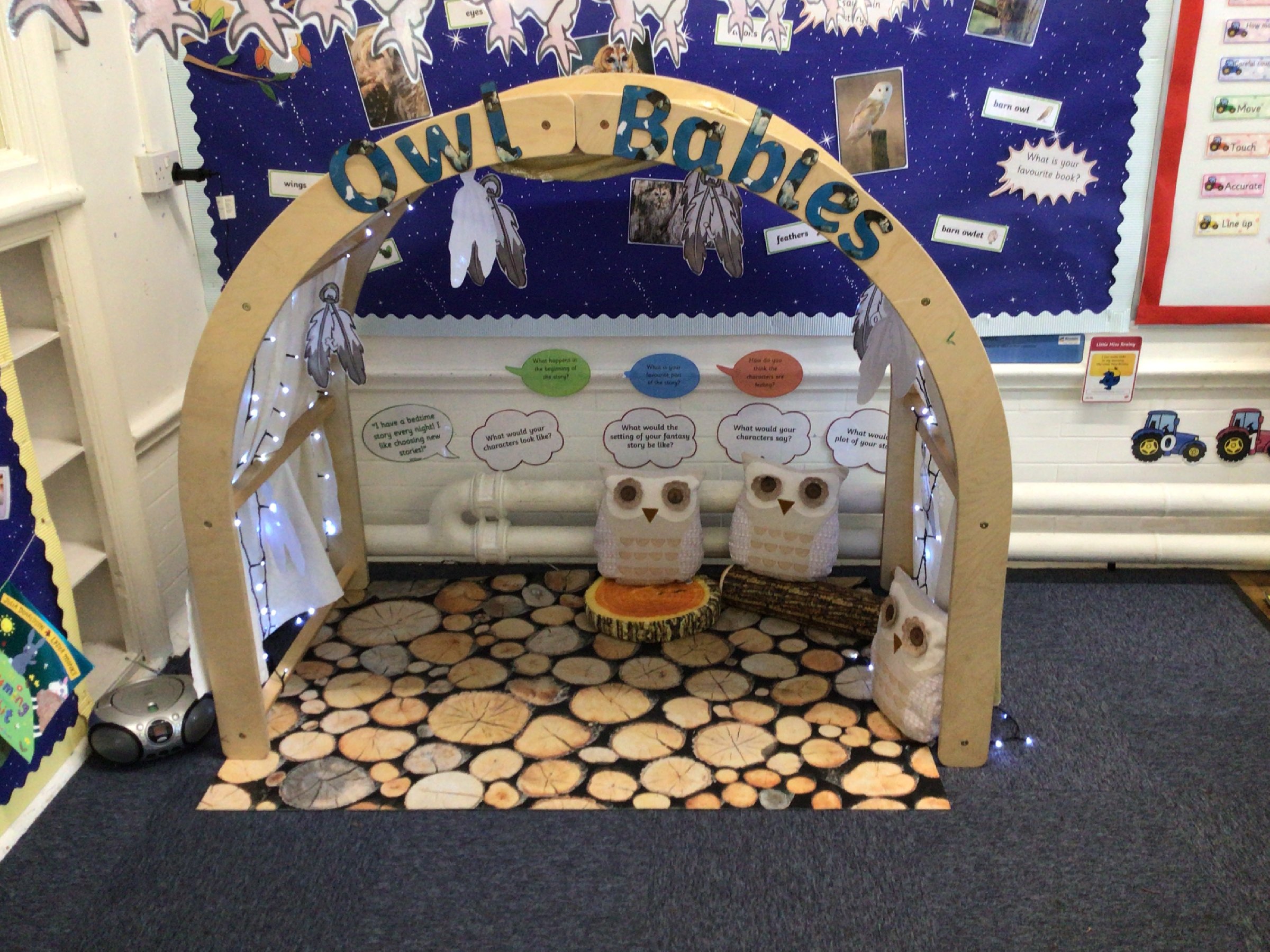
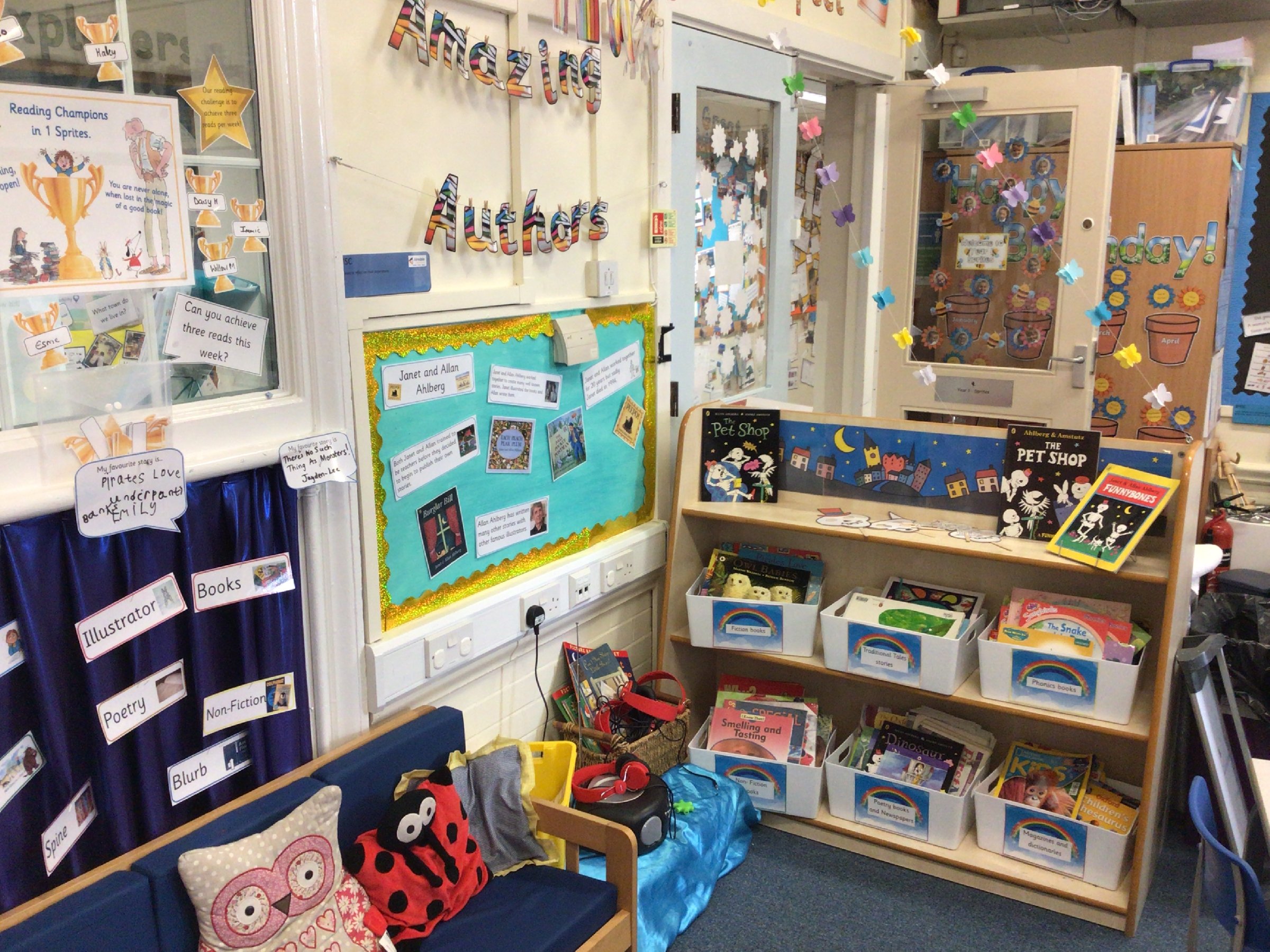
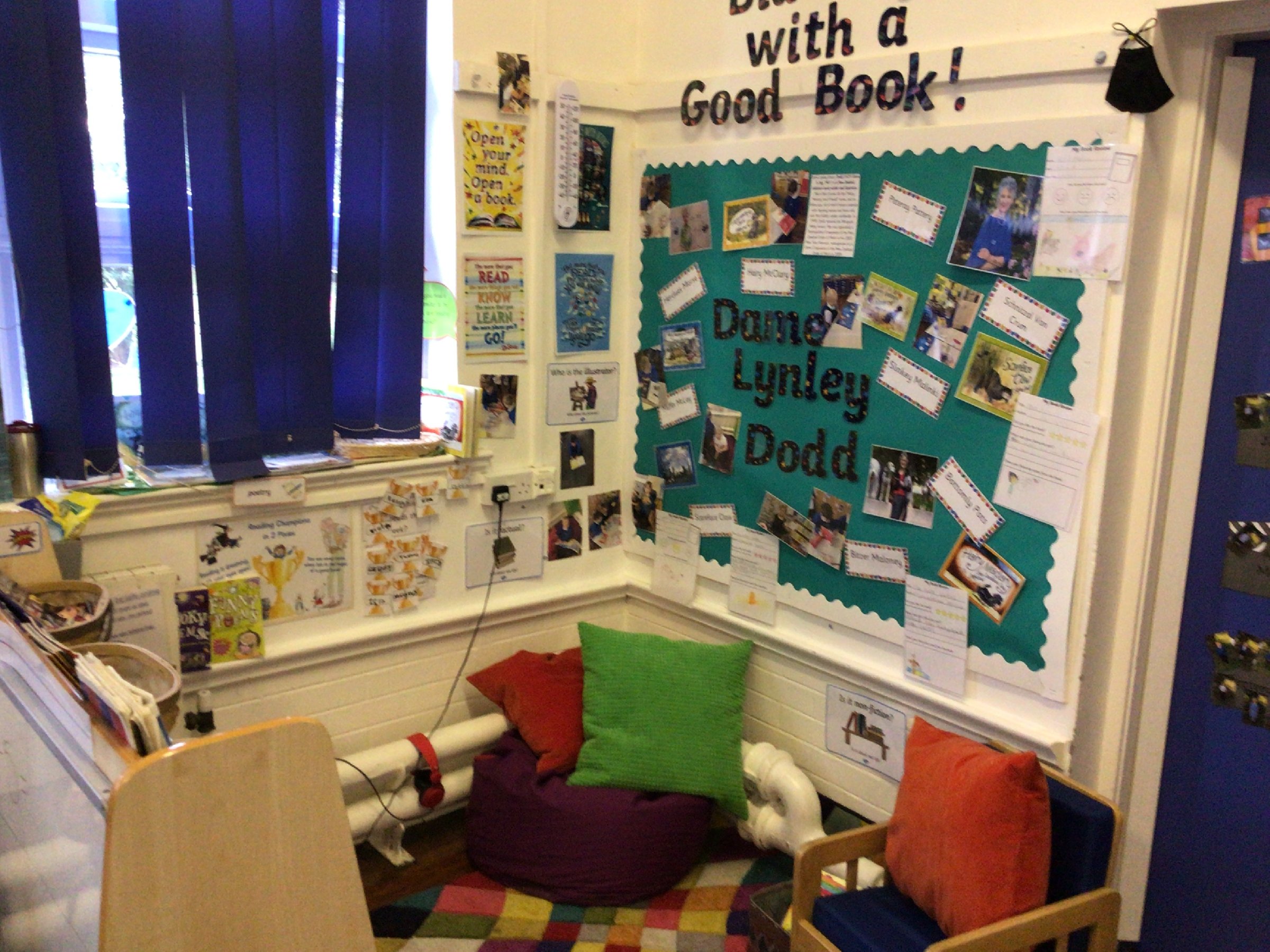
Values
The school ethos of Ambition, Bravery and Respect is woven throughout the English curriculum offer and ensures that children are equipped to take their learning into adulthood. We support all children to be AMBITIOUS as they learn new skills, challenge their own learning through research and create their own pieces of written work. We encourage children to be BRAVE and make mistakes in their learning and the development of drafting and editing supports all children understanding that the ‘first piece is never the finished piece’. We endeavour to provide an English curriculum which celebrates diversity, using a range of texts, language experiences and themes to support our children understanding and RESPECTING the world around them.
Opportunities
At Airedale Infant School we aim to develop children’s literacy skills through a topic based approach which, wherever possible is book led. We aim to provide opportunities for children to develop their literacy skills through other subjects such as History, Geography, R.E. and Science as we want children to see how literacy can be used effectively in other areas of the curriculum.
English is taught daily in all classes as a designated lesson and also as a cross curricular medium. As the English Curriculum aims to ensure that all pupils become fluent in the fundamentals of reading, writing, spelling and grammar, we aim to offer an interesting and varied breadth of study of these skills throughout each year group to keep children engaged and motivated.
In English, pupils develop skills in speaking, listening, reading and writing. These skills enable children to express themselves and communicate in general and to make sense of the whole school curriculum.
Independence
Children are taught English skills daily. They begin with a range of scaffolds to support their independent thinking and as they become more accomplished, these are reduced and children are encouraged to edit, draft and craft more creatively independent pieces. Children have daily reading lessons through the delivery of the Read Write Inc programme which teaches children the sounds in which they need to know to be able to read any word. Daily Read Write Inc lessons provide many opportunities to develop the fluency and accuracy they need to be confident readers. Encouraging a love of reading is fostered through opportunities to read as a class, group, individual and alongside a ‘buddy’ as part of our Reading Befrienders club.
Communication
At Airedale Infant School, language and communication underpins our whole curriculum. Being able to articulate oneself in the spoken and written word is an essential skills which is developed though all aspects of the curriculum. Our children are immersed in language and literature and the development of spoken language and key vocabulary is an essential tool in unlocking learning opportunities across the curriculum. Therefore, we develop our children’s speech and language skills through a wide range of activities including role play, drama, discussions, assemblies and ensure that these skills are developed across all subject areas. Written communication is showcased through other subjects when children demonstrate their learning through ‘Big Questions’ at the end of a topic in Year 2 or as part of cross curricular writing opportunities. They are able to draw from a bank of taught skills communicate that they know more and remember more.
Enquiring Minds
Choosing the right context for learning is essential and starts with vocabulary and the ability to translate this vocabulary into context, apply it to many areas of learning and use it to communicate ideas. Through high quality reading material, we take into account the distinctive needs of the community and ensure that children have many opportunities to ask questions, qualify understanding and be both motivated and curious.

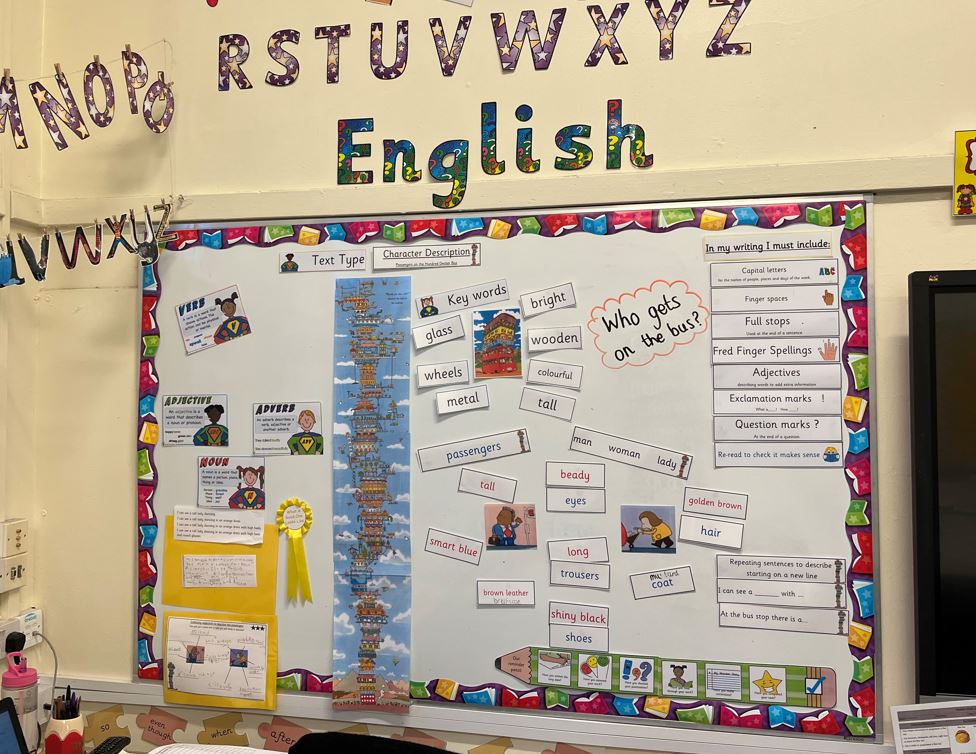
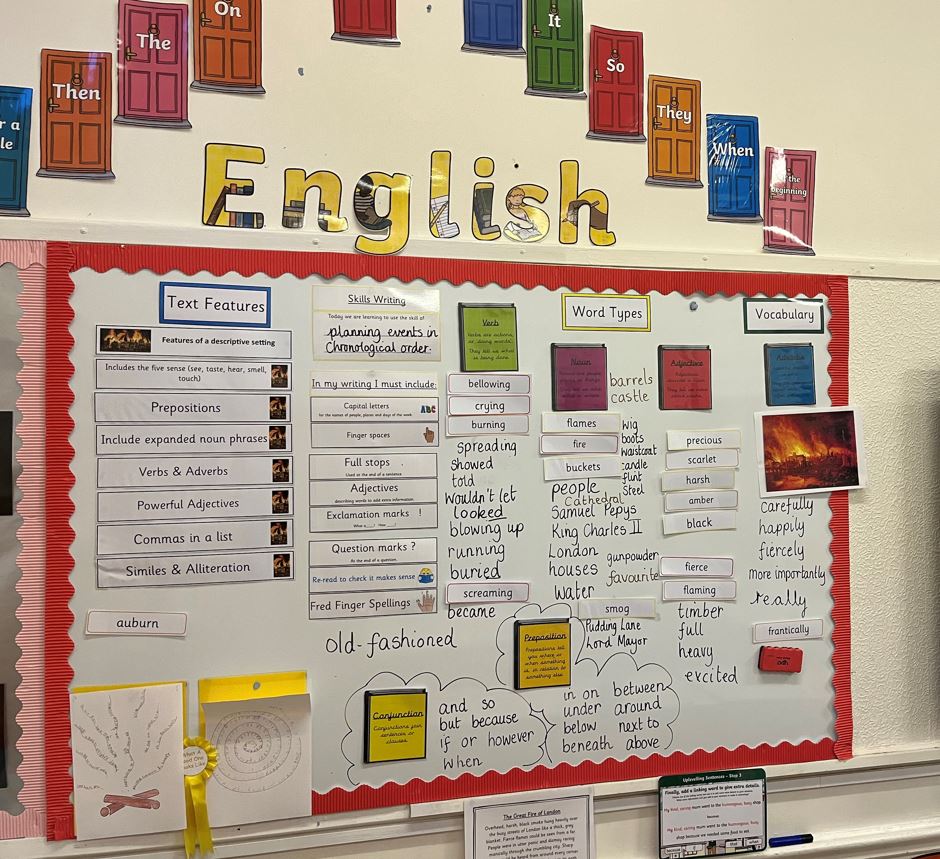
How do we ensure progression of knowledge and skills?
Lessons are planned so that children develop an understanding of the English Language and the rich variety of literature available to them, whilst they acquire and develop key skills. Children are taught to evaluate and improve their reading and writing, encouraged to use their independent and collaborative skills in order to be successful and celebrate the success of themselves and others. Children and adults use specific year group objectives and key skills tracking to ensure that the English curriculum is revised and revisited several times over the course of an academic year. Written work from all subjects is moderated across Trust schools and within the wider community.
How is the subject taught?
When children are in English lessons, they are explicitly told that they are going to be ‘writers’. They are then reminded of the key skills that they will learn, use and develop within this subject, specifically linking to their prior learning. The knowledge content is carefully selected and skilfully taught alongside the key skills and concepts, which are threaded throughout the curriculum. This allows children ample opportunities to revisit, reinforce and embed skills. The English curriculum meets the needs of our learners and ensures they are fully prepared for the next key stage in education by linking directly to the NC14.
How do we know that our children are making progress?
Ongoing assessments of the children’s knowledge and skills are observed by the class teacher. Misconceptions are addressed and next steps carefully planned. Children’s outcomes are compared to the subject specific skills and knowledge documents. At three points in the year, data is gathered; formed from teacher assessment and published materials to triangulate progress and feeds into pupil progress. English skills are assessed throughout the curriculum and are not discretely linked to English lessons.
Further information



